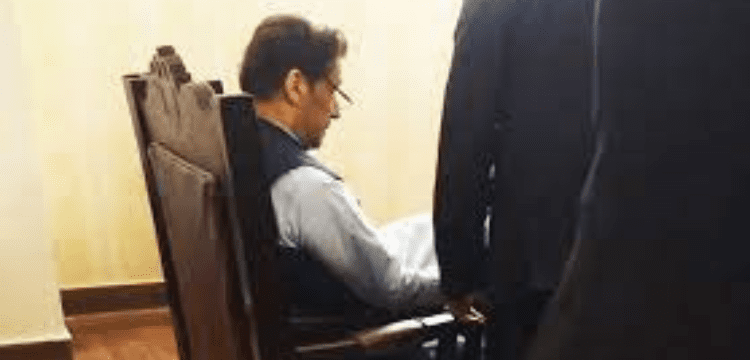[vc_row][vc_column][vc_column_text dp_text_size=”size-4″]On Wednesday, an accountability court granted the National Accountability Bureau (NAB) an eight-day remand of PTI Chairman Imran Khan, who was arrested the day before from the Islamabad High Court (IHC) premises in connection with the Al-Qadir Trust case.
Separately, in the Toshakhana case, a sessions court indicted the PTI chief. Both hearings took place at the Islamabad Police Lines, which was designated as a court venue as a “one-time dispensation” late Tuesday night, amid tight security.
During the hearing of the Al-Qadir Trust case, the corruption watchdog asked the court to remand Imran for 14 days. The hearing was presided over by Judge Mohammad Bashir.
Khawaja Harris, the PTI chairman’s lawyer, objected to the request, claiming that the case did not fall under the jurisdiction of the bureau. He also stated that the NAB had not shared the inquiry report.
“Everyone has the right to a fair trial,” he said, urging that the hearing be held in public. He went on to say that a building had been built on Al-Qadir Trust land where people could receive free education.
Meanwhile, the NAB prosecutor testified in court that Imran was shown the warrant when he was arrested. He also assured Imran’s lawyer that all necessary paperwork would be provided.
“This is a corruption case which the UK’s National Crime Agency has probed,” he said, adding that the money received was meant to be transferred to the government of Pakistan.
“Instead of going to the government, the funds that were received were transferred to Bahria Town,” he explained.
The PTI chief, on the other hand, contradicted the NAB’s version, telling the court that he was shown the arrest warrant when he was taken to the bureau’s office, not when he was arrested.
“I haven’t used the loo in 24 hours,” he told the judge, adding that he wanted his doctor, Dr Faisal, summoned.
“I don’t want what happened to Maqsood chaprasi (peon) to happen to me,” he said, referring to one of the Ramazan Sugar Mills case participants who died in the UAE last year.
“They inject you, and the person dies slowly,” he claims. Following that, the court then reserved verdict.
Also Read: Court indicts former PM Imran khan in Toshakhana case
[/vc_column_text][/vc_column][/vc_row]











